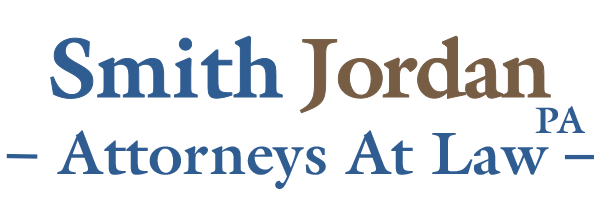
In South Carolina, like in most states, a person injured due to the negligence of another has to file suit against the person or company that injured them- not the insurance company that is providing coverage. The insurance company then has a duty to hire an attorney to defend the case and has to pay any judgment up to its policy limits. See S.C. Med. Malpractice Liab. Ins. Jt. Underwriting Ass’n v. Ferry, 354 S.E.2d 378, 380 (S.C. 1987). For example, if you get injured by a person who runs a red light and hits your car, you would deal with their insurance company in trying to settle your property damage and bodily injury claims prior to filing suit. If you are unable to settle your claims with their insurance company, then you would have to file suit against the person who hit you- not their insurance company which refused to settle the case.
The at fault driver’s insurance company would then have a duty to hire an attorney to defend the at fault driver and to pay any judgment up to the insurance company’s policy limits. At trial, the jury is not told that there is an insurance company involved, or that the insurance company will be responsible for paying the judgment against the defendant. See SCRE 411. This rule leads to some odd lawsuits such as a husband suing a wife, or a child suing a parent because the insurance company does not want to pay what it is obligated to pay.
The same is true when dealing with your own insurance company. If the at fault driver is either uninsured or underinsured, you would make a claim with your insurance company for the damages caused by the at fault driver. For example, if you get injured by a person who runs a red light and hits your car, and does not have insurance, then you would file a claim with your own insurance company for uninsured motorist coverage. If you are unable to settle the claim with your insurance company pre-suit, then you would have to file a lawsuit against the uninsured driver who hit you, and also serve your insurance company with a copy of the lawsuit through the South Carolina Department of Insurance. See S.C. Code Ann. § 15-9-270 Your insurance company would then hire an attorney to defend the case in the name of the uninsured driver who hit you.
An interesting situation happens when the at fault driver has insurance but is underinsured. In that case, you still have to file a lawsuit against the at fault driver and you also have to serve your insurance company as the underinsured motorist carrier, through the South Carolina Department of Insurance. See S.C. Code Ann. §§ 15-9-270 and 38-77-160. The at fault driver’s insurance company will hire an attorney to defend the at fault driver. The at fault driver’s insurance company is required to defend the case and pay any judgment up to its policy limits. At the same time, your insurance company, which provides underinsured motorist coverage, will also hire an attorney to defend the case. The attorney hired by the at fault driver’s insurance company defends the case until that insurance company settles out. Once the at fault driver’s insurance company has settled, then your insurance company gets to take over the defense of the case in the name of the at fault driver. S.C. Code Ann. § 38-77-160 provides that “[t]he insurer has the right to appear and defend in the name of the underinsured motorist in any action which may affect its liability[.]” This means, that if the at fault driver’s insurance company never settles out, then the attorney it hires is the one representing the at fault driver at trial and the attorney hired by your insurance company will just sit at trial observing the case. If the at fault driver’s insurance carrier does settle the case, then the attorney hired by your insurance company would take over the defense of the case and defend it as if they represent the at fault driver.
With a few exceptions, the parties in a trial cannot mention the existence of insurance. This is the case regardless of which insurance company is defending the case. This means that even if the liability carrier has settled out and the case is being defended by an attorney hired by your insurance company that you’ve been paying for years and never made a claim, the parties will not be allowed to mention insurance. In most personal injury jury trials, the first thing a jury does when it goes back to begin deliberations is to send a note to the judge asking about insurance coverage. The judge’s answer is always the same- the jury cannot consider the existence of insurance in reaching its verdict. In almost every personal injury case there is an insurance company hiding behind the named defendant. The next time you see a headline where a child is being sued by an adult or one spouse is suing another, know that there is probably an insurance company lurking in the shadows trying to avoid paying what it is obligated to pay.





